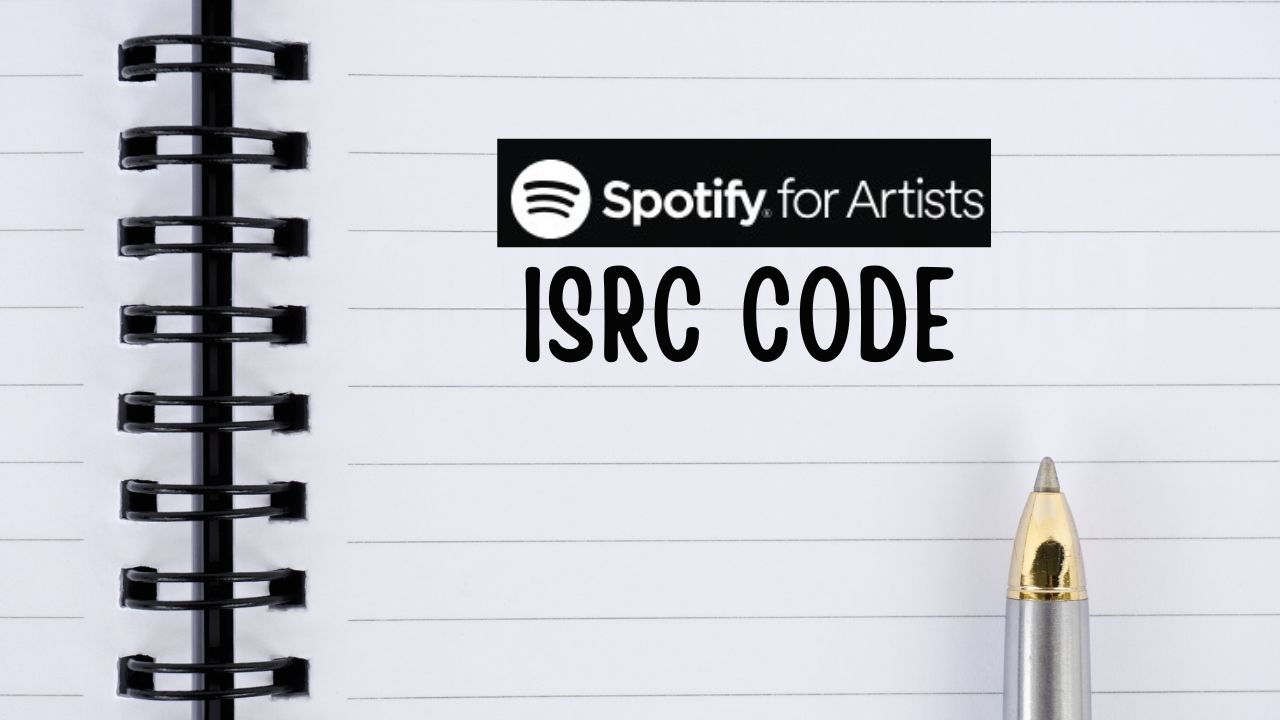In the digital age of music, the importance of metadata cannot be overstated. One of the most critical pieces of this metadata is the International Standard Recording Code (ISRC). This code plays a pivotal role in identifying and managing music tracks, especially on streaming platforms like Spotify. In this blog, we will delve into the role of the ISRC Code in Spotify Distribution, its significance, and how it affects your music career.
What is an ISRC Code?
The International Standard Recording Code (ISRC) is a unique identifier for music tracks. It functions much like a digital fingerprint, ensuring that each track can be uniquely identified across different platforms and jurisdictions. The ISRC code consists of 12 characters, divided into four parts: the country code, the registrant code, the year of reference, and the designation code.
The Role of ISRC Code in Spotify
1. Tracking and Royalties
One of the primary roles of the ISRC Code in Spotify Distribution is tracking. Each time a track is played, Spotify uses the ISRC code to identify the song and log the play count. This tracking is essential for calculating royalties. Without the ISRC code, it would be challenging to accurately track the number of times a track is played, leading to potential discrepancies in royalty payments.
2. Ensuring Accurate Metadata
ISRC codes help maintain accurate metadata for each track. Accurate metadata is crucial for several reasons, including correct artist attribution, genre classification, and playlist inclusion. For artists and labels, ensuring that each track has a correct ISRC code helps prevent mix-ups and ensures that the music is correctly represented on Spotify.
How to Obtain an ISRC Code
1. Through a National ISRC Agency
The most direct way to obtain an ISRC code is through a national ISRC agency. Each country has a designated agency responsible for issuing these codes. For example, in the United States, the Recording Industry Association of America (RIAA) is responsible for issuing ISRC codes.
2. Through Your Distributor
If you distribute your music through a digital distributor like Deliver My Tune, they often provide ISRC codes as part of their service. This can be a convenient option for independent artists who may not want to go through the process of obtaining a code themselves.
Spotify ISRC Code Requirements
1. Uniqueness
Spotify requires that each track has a unique ISRC code. This uniqueness ensures that each track can be individually tracked and identified. Reusing ISRC codes for different tracks can lead to confusion and misattribution of plays.
2. Correct Registration
The ISRC code must be correctly registered and linked to the appropriate metadata. This includes the track title, artist name, album name, and other relevant details. Incorrect registration can lead to issues with royalty calculations and track identification.
The Impact of ISRC on Artist Success
1. Royalties and Monetization
Having a properly registered ISRC code is essential for monetizing your music on Spotify. The code ensures that each play is logged and that royalties are calculated accurately. This is particularly important for independent artists who rely on streaming revenue.
2. Data Analysis
ISRC codes allow artists and labels to track the performance of their music across different platforms. By analyzing the data linked to ISRC codes, artists can gain insights into their listener demographics, popular tracks, and overall streaming trends. This information can be invaluable for marketing and promotional strategies.
Common Issues with ISRC Codes on Spotify
1. Duplicate Codes
One common issue is the use of duplicate ISRC codes for different tracks. This can occur when an artist accidentally reuses an ISRC code or when tracks are misregistered. Duplicate codes can lead to tracking errors and royalty calculation issues.
2. Incorrect Metadata
Another common problem is incorrect metadata associated with ISRC codes. This can happen when the wrong information is linked to a code, such as an incorrect artist name or track title. Ensuring that all metadata is accurate and up-to-date is crucial for proper tracking and royalty distribution.
Best Practices for Managing ISRC Codes
1. Keep a Record
Maintain a detailed record of all ISRC codes assigned to your tracks. This record should include information about each track, such as the title, release date, and associated metadata. Keeping an organized record can help prevent issues like duplicate codes and incorrect metadata.
2. Verify Metadata
Before distributing your music, verify that all metadata linked to your ISRC codes is correct. This includes the track title, artist name, album name, and any other relevant information. Correct metadata ensures that your tracks are properly identified and tracked on Spotify.
3. Use Professional Distribution Services
Consider using professional distribution services like Deliver My Tune. These services often provide ISRC codes and ensure that all metadata is correctly registered. Using a professional service can help avoid many common issues associated with ISRC codes.
How ISRC Codes Benefit Music Promotion
1. Enhanced Discoverability
The Role of ISRC in Spotify extends beyond mere tracking and royalty calculation. ISRC codes enhance the discoverability of music. Accurate metadata tied to ISRC codes helps Spotify’s algorithms recommend your tracks to the right audience. This means more listeners and potentially more fans.
2. Playlist Inclusion
Many playlist curators, both official and unofficial, rely on ISRC codes to manage their libraries. Having a proper ISRC code can increase the chances of your track being included in popular playlists. This exposure can significantly boost your streaming numbers and overall visibility.
Understanding ISRC Codes for Independent Artists
1. Cost-Effective Distribution
For independent artists, the cost-effectiveness of using ISRC codes is a major advantage. Many distributors, like Deliver My Tune, include ISRC code assignment as part of their package. This means you can ensure your tracks are properly registered without incurring additional costs.
2. Control Over Your Music
Using ISRC codes gives independent artists more control over their music. You can track exactly where and how your music is being used, ensuring that you receive the appropriate royalties and recognition for your work.
The Future of ISRC Codes in the Music Industry
1. Integration with New Technologies
As technology evolves, the Spotify ISRC Code Requirements may also change. New technologies like blockchain could integrate with ISRC codes to provide even more transparent and secure tracking of music rights and royalties. Keeping up with these developments can help artists and labels stay ahead in the music industry.
2. Global Standardization
The ISRC code is a globally recognized standard, but as the music industry becomes more interconnected, there may be moves towards even greater standardization and interoperability. This could simplify the process of music distribution and royalty collection across different platforms and regions.
Leveraging ISRC Codes for Better Revenue
1. Maximizing Streaming Revenue
Understanding the Role of ISRC in Spotify can help artists maximize their streaming revenue. By ensuring that each track has a unique ISRC code, artists can make sure that all plays are accurately tracked and monetized. This attention to detail can lead to higher royalty payments over time.
2. Expanding Global Reach
ISRC codes also facilitate the global reach of your music. As streaming platforms like Spotify operate internationally, having a standardized identifier ensures that your tracks are recognized and tracked in every country where Spotify is available. This can help expand your audience and increase your overall streams.
The Relationship Between ISRC Codes and Music Marketing
1. Accurate Reporting
For music marketers, accurate reporting is essential. ISRC codes allow for precise tracking of how well a track is performing. This data can be used to tailor marketing strategies, identify successful campaigns, and allocate resources more effectively.
2. Building a Brand
Using ISRC codes helps build a consistent and professional brand. When all your tracks are correctly registered and tracked, it shows industry professionals that you take your music career seriously. This can lead to more opportunities for collaborations, performances, and playlist placements.
ISRC Codes and Copyright Protection
1. Legal Assurance
ISRC Code in Spotify Distribution provide a level of legal assurance for your music. By having a unique identifier for each track, you can more easily prove ownership and protect your rights in case of disputes. This is especially important in the digital age, where unauthorized use of music is a common issue.
2. Preventing Misuse
Accurate use of ISRC codes helps prevent misuse of your music. When each track is properly identified and registered, it reduces the chances of others using your music without permission. This can help maintain the integrity of your work and ensure you receive the proper credit and compensation.
Conclusion
The ISRC Code in Spotify Distribution plays a crucial role in ensuring that your music is accurately tracked, identified, and monetized. From tracking plays and calculating royalties to maintaining accurate metadata, ISRC codes are essential for any artist looking to succeed on Spotify. By understanding the importance of ISRC codes and following best practices for managing them, you can ensure that your music is properly represented and monetized on one of the world’s largest streaming platforms.
For further reading, explore these related articles:
- Deliver My Tune’s Exciting New Services!
- How is Music Distribution Different from Music Publishing?
- Why is There a Need for Digital Aggregators in Music Distribution?
- Why Distributing Your Music Through Multiple Aggregators Can Be Problematic
For additional resources on music marketing and distribution, visit Deliver My Tune.






